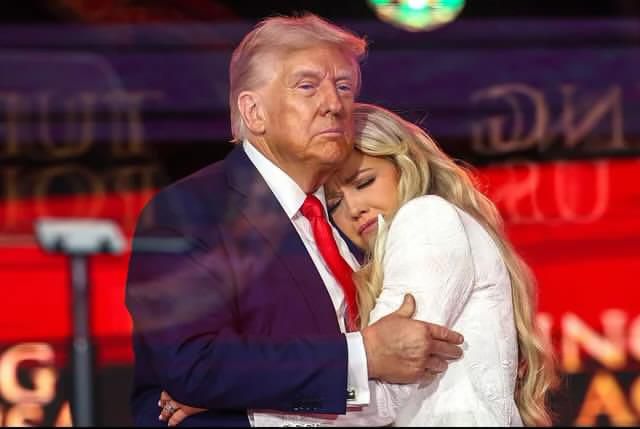NEWS
Donald Trump Comforts Tearful Erika Kirk at Charlie Kirk Memorial Service

A powerful moment unfolded this week at the memorial for Charlie Kirk, the conservative activist and founder of Turning Point USA, who was fatally shot earlier this month. In a moment captured on video, former President Donald Trump was seen embracing Erika Kirk, Charlie’s widow, on stage—offering comfort, framing her grief, and calling Charlie a martyr for American freedom.
Held at State Farm Stadium in Glendale, Arizona, the memorial drew tens of thousands of mourners. Trump, Vice President J.D. Vance, and other prominent conservative leaders spoke. Many turned the memorial into a moment of religious tone and political symbolism.
What Trump Said & How He Framed Charlie Kirk
- Trump described Charlie Kirk as a “great American hero” and repeatedly used the term “martyr for America’s freedom” in his tribute.
- He affirmed that Kirk’s death wasn’t just personal loss—it was an ideological blow, framing the killing as something that attacks not only an individual but values, beliefs, and what he called “freedom” itself.
- Trump’s comments struck a more confrontational chord than other parts of the memorial. While Erika Kirk spoke of love, forgiveness, and continuing her husband’s mission through faith, Trump also made clear that, to him and many attendees, this moment is part of a broader political struggle.
The Moment with Erika Kirk
The image of Trump comforting Erika Kirk was emotionally loaded. Erika had earlier given a stirring, Christian-inflected speech in which she expressed forgiveness toward Charlie’s accused killer, emphasizing her husband’s ideals and calling for unity rather than rage.
When Trump walked on stage afterward, the embrace was seen by many as both solace for her sorrow and a public manifestation of the intertwining of grief, faith, and politics in this moment.
Political & Cultural Implications
This memorial is more than just remembering a fallen figure: it seems to serve as a catalyst for mobilization. A few observations:
- Martyrdom & Narrative Building
By declaring Charlie as a martyr, the conservatives present—including Trump—are laying down a narrative that Charlie’s death is a rallying cry. Martyrs in political culture tend to become symbols. They grow beyond their lifetime through what they represented. - Contrast Between Forgiveness & Polarization
Erika’s message focused on faith, forgiveness, unity. Trump’s was about values, political urgency, and the stakes of ideological conflict. The contrast has sparked debate: Are we witnessing healing, or is this moment being used to reinforce divisions? - Media & Public Perception
The image of Trump consoling Erika Kirk—emotional, intimate, visually strong—will travel far. It plays into themes many supporters want: that leaders show empathy, that loss isn’t hidden, and that public mourning can be both personal and political. - Questions of Safety, Free Speech, and Political Violence
The memorial has brought renewed focus to how divisive rhetoric, hate, and violence are interacting in U.S. politics. Critics worry about escalation, about how public discourse is deepening polarization.
Supporters see this as proof that speaking out and standing firm has costs—and that those costs demand remembrance and action.
Final Thoughts
The image of Trump holding Erika Kirk as he calls Charlie a martyr is sure to become one of this era’s defining political pictures: grief, faith, and political identity all in one frame.
Whether this moment leads to greater unity or sharper division, it underscores how Charlie Kirk’s death has become more than a tragedy—it has become a symbol for many, and the memorial served as a turning point for political culture among his supporters.
For many attendees, it wasn’t just about mourning—it was about declaring whose side they believe they are on. And from Trump’s speech to Erika’s forgiveness, to tens of thousands gathered, the message was loud: Charlie Kirk’s influence isn’t over.











